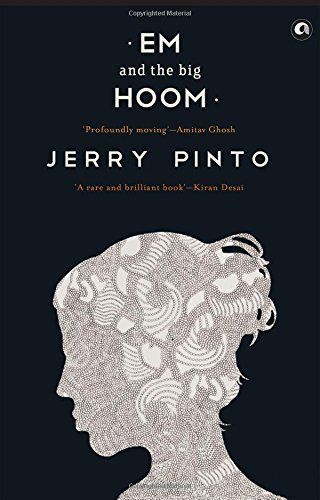
EM and the Big Hoom
In a one-bedroom-hall-kitchen in Mahim, Bombay, Imelda Mendes-Em to her children-holds her family in thrall with her flamboyance, her compelling imagination, her unspoken love, her sometimes cruel candour. Through this, her husband, to whom she was once 'buttercup', her son and daughter learn to cope with her mania and her frequent wish to die. A searing and at times darkly funny, study of mental illness, and also a deeply moving story about love and family relationships.
Reviews
Ditipriya Acharya@diti
Rohit Arondekar@rohitarondekar
Prashanth Srivatsa@prashanthsrivatsa
Jennifer Dieter@jdeets03
ananya@ananyamav
Srijita Sarkar @srijita
Deepika Ramesh@theboookdog
Kritika Narula@kitkatreads
Ivy Vatsala@ivy93
Mithesh Gawande@thechaisamurai
Aman ankur@amanankur
Varshh@thefriendlyreader
Nimish@nimsaw
Madhu kishore@kishore
Arun Kale@arunkale
Sakthi Varshini@curiousquaintrelle
Kinnari @kinnari
Epsita@bookishdiya
Christina@xtina
Neeti Choudhari@readabookhoe
Highlights
Srijita Sarkar @srijita
Srijita Sarkar @srijita
Srijita Sarkar @srijita
Srijita Sarkar @srijita
Srijita Sarkar @srijita
Srijita Sarkar @srijita
Srijita Sarkar @srijita
Srijita Sarkar @srijita
Srijita Sarkar @srijita
Srijita Sarkar @srijita
Srijita Sarkar @srijita
Srijita Sarkar @srijita
Srijita Sarkar @srijita
Srijita Sarkar @srijita
Srijita Sarkar @srijita
Srijita Sarkar @srijita
Srijita Sarkar @srijita
Srijita Sarkar @srijita
Srijita Sarkar @srijita
Srijita Sarkar @srijita
Srijita Sarkar @srijita
Srijita Sarkar @srijita
Srijita Sarkar @srijita
Srijita Sarkar @srijita